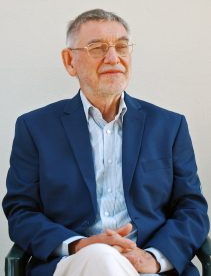Introduction
The Suffolk Villages Festival, based in ‘Constable Country’ on the Suffolk-Essex border, offers about ten concerts throughout the year, four at the Festival itself during the August bank holiday weekend and more in its Autumn to Spring concerts, from October to May.

Today the Festival offers music from the middle ages to the nineteenth century, sacred and secular, vocal and instrumental; semi-staged and concert performances of early operas are a regular feature.
The director of the Festival, musicologist-performer Peter Holman, plans concerts that mix familiar masterpieces by Monteverdi, Bach, and Handel with work by Biber, Schütz, Linley and others whose music remains exciting though their fame has diminished.
The Festival has three resident ensembles, the chamber choir Psalmody and the period-instrument chamber ensemble The John Jenkins Consort and the Essex Baroque Orchestra.
The Festival began in 1988 as the Stoke by Nayland Festival of Georgian Music, offering three concerts over the August bank holiday weekend. This increased to six concerts over the bank holiday weekend, as well as three or more throughout the year; widening the repertory and increasing the number of venues made a change of name necessary in 1992. From the outset, the Festival has mixed performances of major works by its resident ensembles with visits by distinguished soloists and professional chamber ensembles. Over the years the Festival has offered many Baroque and Classical masterpieces, such as Monteverdi’s Orfeo, Il ballo delle Ingrate and 1610 Vespers, Purcell’s Dido and Aeneas, Dioclesian, King Arthur, The Fairy Queen and The IndianQueen, Marc-Antoine Charpentier’s Te Deum, and Acteon, J.S. Bach’s St John and St Matthew Passions, the Mass in B minor and the Magnificat, Handel’s Messiah, Esther,Alexander’s Feast, L’allegro, il penseroso ed il moderato and Israel in Egypt, Haydn’s Creation, and Mozart’s Mass in C minor, Requiem and Il re pastore.
At the same time, the Festival has established a reputation for adventurous concert planning. In 2000 it gave rare performances of Heinrich Biber’s monumental Missa Salisburgensis, requiring about 75 singers and players, and it has consistently championed neglected English music, putting on performances of John Blow’s Venus andAdonis and John Stanley’s Teraminta as well as complete concerts devoted to William Boyce, Thomas Linley junior and Samuel Wesley. Most recently, it put on the first British performance of C.P.E. Bach’s recently rediscovered 1769 St Matthew Passion.
Peter Holman is both a performer (usually on the harpsichord) and an academic musicologist whose knowledge supplies thoughtful and stimulating concert programmes. His wide-ranging talents earned him an MBE for services to early music in 2015. He is director of The Parley of Instruments, the choir Psalmody, Essex Baroque Orchestra and Leeds Baroque; he is also Professor Emeritus of Historical Musicology at the University of Leeds. The author of several books on aspects of Baroque music, Peter is also a regular broadcaster on BBC Radios 3 and 4.